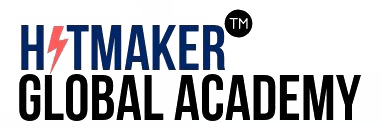Victorian certificate of Education YEAR 11
(Arts Stream)
Course Outline
Learning Outcomes
- Comprehensive Subject Mastery
Gain an in-depth understanding of selected subjects, ensuring readiness for Year 12’s intensive curriculum. - Advanced Critical Thinking
Develop the capacity to critically evaluate, analyze, and synthesize information, a vital skill for future academic pursuits. - Effective Communication
Master the art of articulating thoughts, both in written form and verbal discourse, aligning with academic and real-world demands. - Research Aptitude
Acquire essential research techniques, enabling them to source, appraise, and reference information effectively. - Problem Solving Abilities
Address challenges methodically and innovatively, leveraging a blend of theoretical knowledge and practical application. - Time Management & Study Skills
Learn to allocate time efficiently, prioritize tasks, and adopt effective study habits to optimize learning. - Cultural Awareness
Cultivate a broader understanding of diverse global perspectives, particularly valuable given Singapore’s multicultural milieu. - Ethical Consideration & Integrity
Understand and uphold the principles of academic honesty and ethical considerations across varied subjects. - Collaborative Skills
Engage productively in group tasks and projects, appreciating the value of teamwork and diverse viewpoints. - Career and Further Studies Orientation
Gain insights into potential academic pathways post-VCE, aligning studies with career aspirations and strengths.
| Level |
|
| Method | On campus |
| Assessment Methods | Coursework and Quizzes | Assignment | Exam (Practical and Paper-based) |
| Maximum Duration | 12 months | No refund for failure to complete course |
Subject Recommendations, Study Methods and Entry Requirements
Core Subjects
- English/English as an Additional Language (Compulsory)
Choose one or both from below:
- Mathematics/Mathematical Methods
- Psychology
Language Electives
Choose one or two subjects from the list below:
- Chinese First Language/Chinese as additional Language
- French
- Korean
- Japanese
Arts Stream
- Visual Communication & Design
- Media
Mode of study
- Full-time
- On campus
Entry-Requirements
- Minimum age: 16 years at the start of the course
- Language: Pass entrance Language assessment test (achieve at least a minimum of CEFR A2)
- Completion of Minimum GCE N’ Level, Grade 9 Lower/Junior Secondary School or equivalent
Course Information
Admission Requirements
 GCE ‘N’ Level/Grade 10 or Equivalent
GCE ‘N’ Level/Grade 10 or Equivalent
 MIN 16 YEARS @START OF TERM
MIN 16 YEARS @START OF TERM
Portfolio | English requirements
 Submission of an Art Portfolio
Submission of an Art Portfolio
 C6@GCE ‘O’| IELTS 5.5 | TOEFL 46 | DUOLINGO 85 | Equivalent.
C6@GCE ‘O’| IELTS 5.5 | TOEFL 46 | DUOLINGO 85 | Equivalent.
Course Intake | Duration
 SPRING | SUMMER | FALL
SPRING | SUMMER | FALL
 12 months, 24 teaching weeks
12 months, 24 teaching weeks
 S$18000 (Singaporean) / S$26000 (SPR)
S$18000 (Singaporean) / S$26000 (SPR)
Audition & Interview
 Presentation of Art Portfolio is required
Presentation of Art Portfolio is required
 15 Mins Interview
15 Mins Interview
Course Mode
Full-Time
Learning Methods
Delivery modes:
Hitmaker Programmes are conducted and delivered using the hybrid model of both online and blended learning approaches. The method allows students to learn flexibly with non-practical modules delivered online.
-
- On-campus
Assessments
Depending on the modules, assessment/examination may vary in way of:
-
- Course Assignment – Student is required to complete and submit instructions in the form of a written assignment
- Practical Examination – Student is assessed (especially music performance) in the form of live performance judging
- Application/Computer-based Examination
- Workshop Assignments – Student is assessed in a group context and normally given a set of tasks to complete
- Paper-based Examination
Teacher-student Ratio
The teacher to student ratio shall depend on factors such as:
1. The nature of the course/module:
-
-
- Private Instructions | 1:1
-
2. The size of the premises:
-
-
- Ensemble | 1:10
- Tutorial | 1: 8
- Music Production | 1:5
- Instrumentals | 1:5
- Lecture | 1:25
-
Covid Advisory – Due to the restrictions, class size is kept to the limitation of 1 – 2 metres distancing measures. Student shall expect a smaller class sizes or smaller cohort sizes.
Course Fees
| Full Fees | JAC Funding |
| S$18,000.00 | S$26,000.00 |
JAC Foundation Scholarship subsidises course fees for students, enabling them to fulfil their full potential. It also sponsors and supports costs for programmes and musical instruments. Eligible students will be given JAC Foundation Scholarship forms along with their Letters of Offer.
Application & Audition Fees
1. Pre-enrollment fees
| Application fee | S$50.00 |
| Audition fee(If applicable) | S$150.00 |
2. Enrollment fees
| Registration fee | S$300.00 |
| Study Resources & Facility | S$1,000.00 |
Assessments
The Victorian Certificate of Education (VCE) is typically completed in years 11 and 12 in Victoria, Australia. VCE subjects are divided into units, each covering a semester of study, with units 3 and 4 usually taken sequentially in year 12. Assessment is both internal and external, with internal assessments including School Assessed Coursework (SACs) and School Assessed Tasks (SATs), and external assessments consisting of examinations set by the Victorian Curriculum and Assessment Authority (VCAA) for units 3 and 4. To receive an Australian Tertiary Admission Rank (ATAR), students must complete at least three units of English and twelve additional units. External exams are conducted in late October and November, with some subjects having additional oral or performance tests. The General Achievement Test (GAT) is an essential part of the assessment process, and a variety of subjects have specific assessment formats, including oral examinations for language studies and performances for arts subjects
- Year 11 (Units 1/2): Assessment is entirely internal through School Assessed Coursework (SACs) and in some subjects, School Assessed Tasks (SATs).
The scoring system for the Victorian Certificate of Education (VCE) involves both qualitative and quantitative measures, especially for Year 12, which affects the Australian Tertiary Admission Rank (ATAR). Here’s a general guide to how scoring works for both years:
Year 11 (Units 1/2):
- Assessments result in a ‘Satisfactory’ (S) or ‘Non-Satisfactory’ (N) designation for each outcome within a unit.
- Some schools may provide additional grades or scores for internal tracking and feedback, but these do not contribute to the VCE certification or ATAR.
- The primary focus is on whether students have met the outcomes rather than on specific grades or scores.
EXPECTED EXAMINATION RESULTS RELEASE DATE | 1month after the examination
EXPECTED AWARD CONFERMENT DATE | within 1 month after successful completion of all modules
